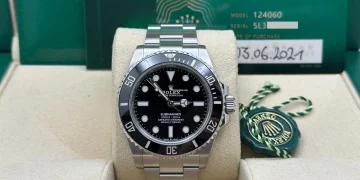Introduction
In the world of consumer goods, particularly luxury and high-end products, brand stories and historical backgrounds have become increasingly influential in shaping the decisions of buyers. A brand’s history, its founding narrative, and the evolution of its values are often far more than mere marketing tools—they are the foundation of trust, emotional connection, and authenticity that drives consumers to make purchases. In many cases, the story behind a brand can be just as important as the product itself.
For decades, companies have crafted and promoted their stories to create an aura of exclusivity, craftsmanship, and legacy. But how much of an impact does this story really have on consumer decisions? Does a strong brand history compel people to buy, even if there are other alternatives that offer similar quality or functionality?
This article delves into the power of brand stories and historical context in shaping purchasing decisions. We will explore why consumers are drawn to brands with rich legacies, how brands leverage their history to foster loyalty, and whether a brand’s past truly matters more than the present-day offering. Moreover, we will look at real-world examples from various industries—from luxury watches to high-end fashion and automobiles—where brand stories have made a significant impact on their success.
1. The Emotional Connection Between Consumers and Brand History
1.1 Understanding the Power of Storytelling in Branding
- Storytelling as a marketing tool: How stories evoke emotions and build a lasting connection with consumers.
- The human tendency to seek connection: Why consumers are naturally drawn to narratives that resonate with their values, aspirations, and ideals.
1.2 Why Consumers Relate to Brand Narratives
- Authenticity: Consumers appreciate genuine stories that reflect the origins and evolution of the brand.
- Heritage and craftsmanship: Brands that emphasize their craftsmanship and heritage often create a sense of reliability, trust, and high value.
- Nostalgia: For many, the brand story invokes nostalgia, connecting them to past experiences or aspirations.
2. How Historical Background Influences Trust and Brand Loyalty
2.1 The Role of Heritage in Building Trust
- Longevity and experience: A brand with decades or centuries of experience often signals expertise, reliability, and a proven track record.
- Historical milestones: Significant events in a brand’s history, such as breakthroughs or innovations, become synonymous with their identity and the quality they stand for.
2.2 Establishing Brand Loyalty Through Legacy
- Trust built through time: The longer a brand has been established, the more likely consumers are to trust it.
- Repeat customers: A rich brand history fosters loyalty by associating the product with tradition and excellence, often resulting in customers who return for future purchases.
- Influence of word-of-mouth and testimonials: Historical significance often leads to favorable word-of-mouth recommendations, as consumers share the stories behind the products they love.
3. Brand History as a Tool for Differentiation
3.1 Distinguishing a Brand in a Competitive Market
- Saturated markets: In industries with a vast array of competitors, a brand story can serve as a powerful differentiator.
- Emotional appeal: Consumers are often drawn to stories that highlight unique values, craftsmanship, or milestones that differentiate the brand from others in the market.
3.2 Brands That Have Mastered the Art of Storytelling
- High-end fashion brands like Chanel, Gucci, and Louis Vuitton: How their storied pasts continue to influence the luxury market.
- Watchmaking brands such as Rolex, Patek Philippe, and Omega: Their brand histories create an aura of prestige and timelessness that appeals to affluent buyers.

4. Case Studies: How Brands Have Successfully Used Their History to Drive Purchases
4.1 Luxury Watches: The Influence of Legacy and Craftsmanship
- Patek Philippe: A brand that emphasizes its historical connection to aristocracy and watchmaking excellence.
- Omega: How the brand used its rich history in space exploration and the Olympics to attract a loyal customer base.
- Rolex: The story of Rolex’s journey from a small startup to an iconic symbol of success and prestige.
4.2 Luxury Automobiles: Combining Innovation with Tradition
- Mercedes-Benz: The combination of luxury, performance, and a century-long history of engineering excellence.
- Ferrari: How the brand’s storied past in racing and high-performance vehicles continues to fuel consumer passion.
- Rolls-Royce: The brand’s dedication to craftsmanship and heritage as a key selling point to luxury buyers.
4.3 Fashion and Apparel: How Legacy Builds a Timeless Appeal
- Louis Vuitton: The story behind its iconic trunks and their association with high society, which has helped the brand maintain relevance over the years.
- Burberry: The evolution of Burberry from a military supplier to a leading fashion brand, leveraging its historical roots to appeal to modern customers.
- Hermès: A brand whose focus on heritage, craftsmanship, and family tradition enhances its appeal to consumers seeking exclusivity and quality.
5. The Modern Consumer: Is Brand History More Important Than the Product?
5.1 The Rise of Millennial and Gen Z Consumers
- Shifting values: How younger consumers prioritize brand values, sustainability, and story over the pure functionality of a product.
- The importance of transparency: Younger generations often value knowing the story behind a brand, especially when it comes to its ethical practices and sustainability efforts.
5.2 Brand History vs. Modern Features: A Balancing Act
- Some consumers may prioritize the latest technological advancements or modern aesthetics over a brand’s historical legacy.
- The blending of history with innovation: Brands that successfully combine their historical identity with modern trends appeal to a broader audience.
5.3 Case Example: Tesla and the Relevance of Legacy in the Electric Vehicle Market
- Tesla as a modern disruptor: Although Tesla has only been around for a relatively short time, its story is already seen as an important part of its branding, especially with the company’s focus on sustainability and innovation.
- Legacy of traditional automotive giants: How brands like BMW, Audi, and Mercedes leverage their decades of history to maintain their appeal in a rapidly changing automotive landscape.
6. The Impact of Brand Stories on Price Premiums and Consumer Perception
6.1 How Brand History Justifies Higher Prices
- The concept of ‘perceived value’: A brand with a rich history is often seen as worth the higher price tag due to its reputation for quality and tradition.
- Price vs. value: Consumers are often willing to pay a premium for a product if the brand story resonates with them and provides an emotional or aspirational value.
6.2 The Psychological Effect of a Strong Brand History
- The emotional connection leads consumers to see the purchase not just as a transaction but as an investment in a piece of history, culture, or legacy.
- Exclusivity: A strong brand story often carries with it an element of exclusivity, which attracts consumers who value status and uniqueness.
7. How Brands Can Harness Their Story for Long-Term Success
7.1 Continuity and Evolution: Maintaining the Story Over Time
- While brand stories are powerful, it’s essential for companies to evolve without losing their essence. Companies that keep their history relevant in today’s market are more likely to maintain success.
- Adapting to modern times: Some brands have succeeded in adapting their historical narratives to appeal to new generations while still maintaining their roots.
7.2 Incorporating Heritage into Marketing Campaigns
- Marketing campaigns that incorporate a brand’s history can be extremely effective in building a strong connection with the audience.
- How to tell a compelling story: Brands must ensure that their stories are told in an engaging way that resonates with their target audience.
Conclusion: The Enduring Influence of Brand History on Consumer Decisions
In the end, brand stories and histories hold immense power over consumer purchasing decisions. Whether through a century of watchmaking excellence, a legacy of craftsmanship, or an association with iconic figures or events, the narratives behind brands serve to build trust, emotional connections, and perceived value. Consumers don’t just buy products—they buy into stories, history, and legacies that speak to their values and desires.
As we continue to live in an era where brand perception is everything, companies that successfully incorporate their historical roots into their branding strategies will remain at the forefront of consumer minds. The future of branding may evolve, but the influence of a compelling story will always remain a key driver of purchasing decisions.





































